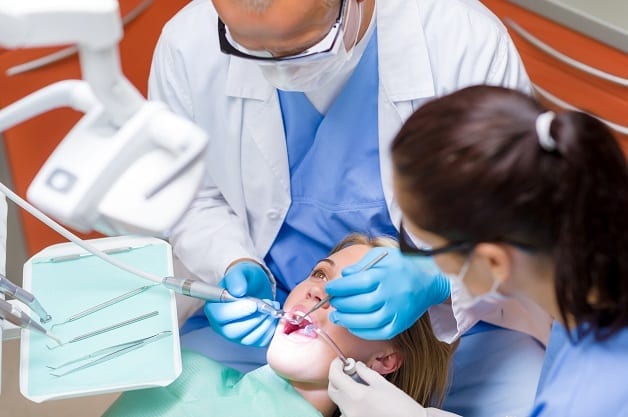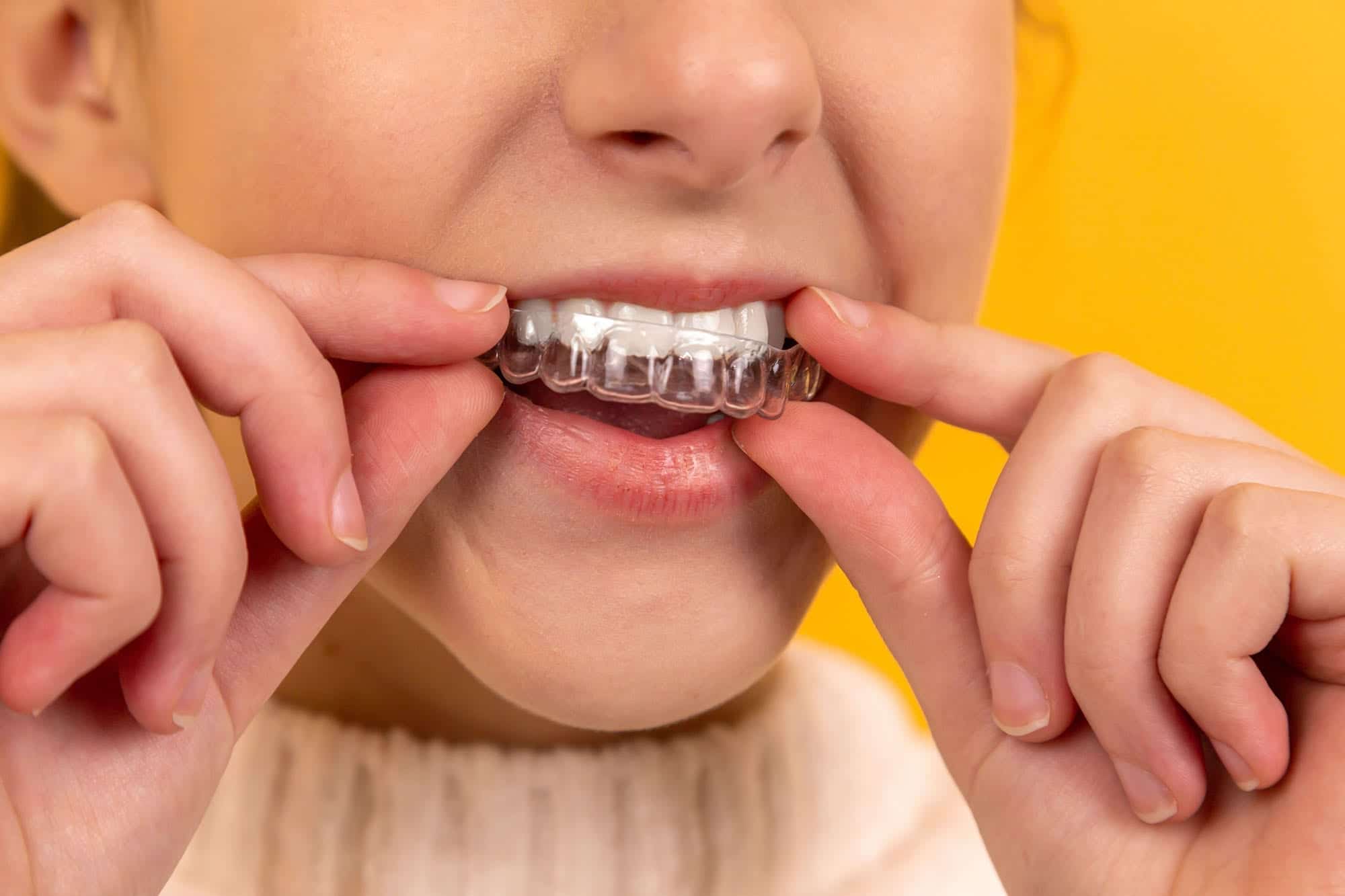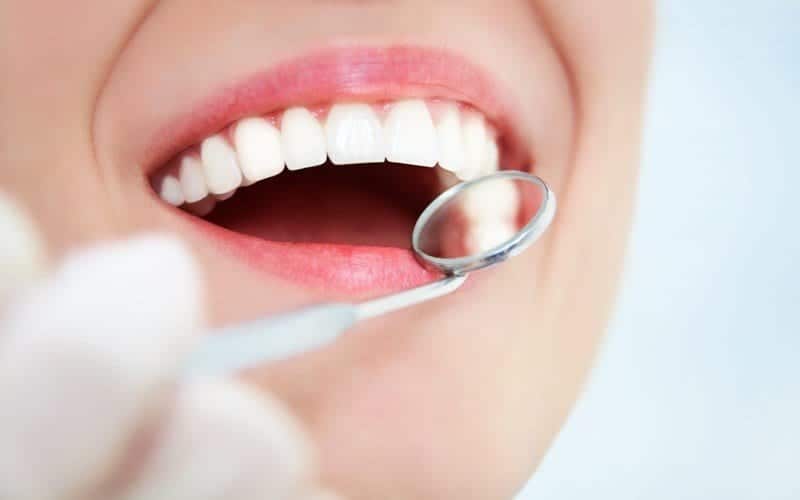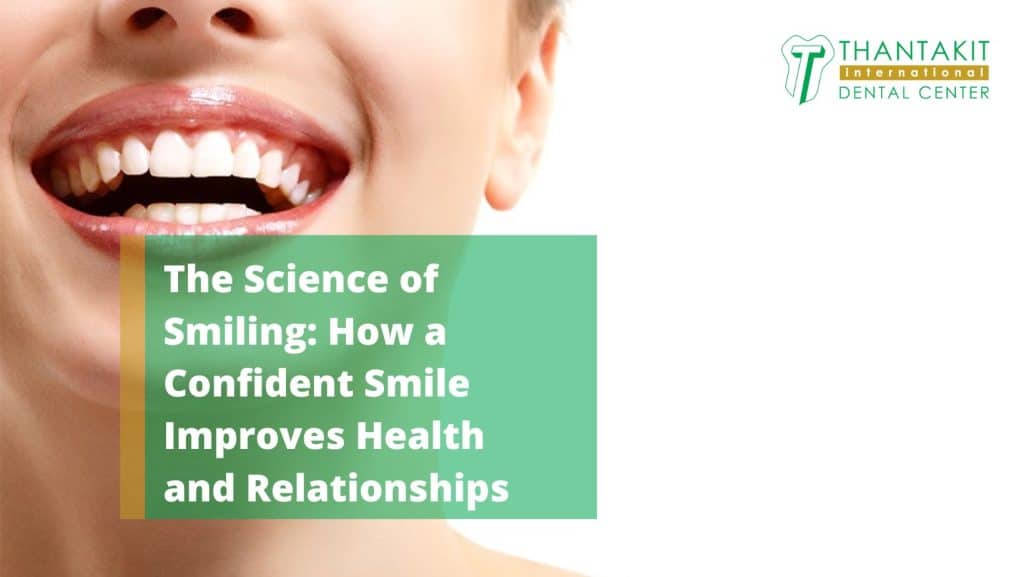Walk through any busy street in Bangkok, London, or New York. Notice something? People smile. Sometimes it’s a big grin between friends. Other times, just a polite curve of the lips when strangers make eye contact. Simple gesture. Still, it softens the air around us.
Here’s the thing: it’s not just social politeness. Science keeps digging into what most of us feel in our gut. Smiling does more than signal friendliness. It nudges your body. Your brain. Even how relationships play out. Lowers stress. Builds trust. A confident smile has real consequences for health and happiness.
Think about it. Ever had one of those heavy days where everything felt impossible, then someone flashed you a genuine smile? For a second, things felt lighter. More manageable. That’s not your imagination playing tricks. Studies in psychology and medicine confirm that smiles trigger actual chemical changes in your brain. They boost mood. They make others respond more positively to you.
On the flip side, not everyone feels free to smile openly. Plenty of people hide their teeth when they laugh. They dodge photos. Keep their lips pressed tight in conversation. Crooked teeth, stains, missing teeth, old dental work that looks obvious. These things create self-consciousness strong enough to hold someone back every single day. And that hesitation? It doesn’t just affect how we look. It shapes how others see us. Worse, it shapes how we see ourselves.
At Thantakit Dental Center in Bangkok, we’ve watched this transformation happen for 77 years. Patients come in hiding their smiles. They leave, well, different. After treatment, whether it’s whitening, veneers, dental implants, doesn’t matter. They tell us the same thing. They don’t just look different. They feel different. Relaxed. Open. Ready to connect with people again.
Let’s dig into the actual science behind smiling. How it influences your mood, shapes relationships, supports physical health. Then we’ll connect those dots to modern cosmetic dental solutions that help anyone regain the confidence to smile freely. Because the pattern keeps repeating. A confident smile does more than meet the eye.
Page Contents
The Psychology of Smiling: More Than Just Muscle Movement
The Facial Feedback Hypothesis
Okay, let me share something weird I do. When work stress hits hard, I’ll catch myself forcing a small smile while making coffee. Ridiculous? Maybe. But within minutes, the tension actually eases up. Turns out there’s some science behind this odd little habit.
Psychologists call it the facial feedback hypothesis. Fritz Strack ran this famous experiment back in 1988. People held pencils in their mouth different ways. Some positions forced a smile, others prevented one. The forced-smile group? They rated cartoons as funnier. The brain takes cues from your facial muscles to decide how you’re feeling. Wild, right?
More recent work out of the University of Tennessee backs it up. Participants smiled during stressful tasks. Their heart rates recovered faster afterward. Even fake smiles work. Your brain often can’t tell if you’re genuinely happy or just moving the right muscles.
One patient told me something that stuck. Thai businessman, lots of high-pressure meetings. He started forcing himself to smile for thirty seconds before each presentation. “Felt stupid at first,” he said. “But my anxiety dropped. Clients responded better. Now it’s automatic.”
In our clinical experience, a nurse from Chiang Mai keeps a sticky note on her mirror: “30 seconds.” She smiles at herself before every night shift. Says it steadies her.
Cultural Universality and Variations
Paul Ekman’s work in the 1970s suggested something fascinating. Basic facial expressions, including smiles, get recognized across all cultures. Rural Thailand, urban Brazil, isolated ethnic groups in Papua New Guinea, doesn’t matter. Humans understand what a smile means. Here’s the twist though.
How and when we smile? That varies wildly.
In Thailand, where Thantakit has served patients since 1948, the smile holds special meaning. The famous Thai smile isn’t one expression. It’s actually about thirteen different variations. Each has subtle meanings. There’s the polite smile for strangers (yim thak thaai). The embarrassed smile to save face (yim mee lessanai). The genuine joy smile for close connections (yim cheun chom). International patients visiting Bangkok for dental tourism often mention this. The warm smiles make them feel welcomed before any treatment even begins.
BTS platforms, soi coffee stands, weekend markets. Smiles everywhere. That part matters.
Western cultures, especially Americans, they love big toothy grins. Wide smiles equal confidence and success to them. East Asian contexts might see reserved smiles as more professional. Understanding these differences matters. Thantakit serves local Thai patients and visitors from over forty countries. We see these cultural preferences play out daily.
The Neurochemical Cascade
When you smile, your brain doesn’t just think “oh, happy now.” Nope. It starts this whole chemical party.
Dopamine hits first. That’s your reward chemical. Same one that spikes when you eat chocolate or, let’s be honest, check your phone for the hundredth time. Then serotonin joins in, helping regulate mood and social behavior. Finally, endorphins show up. Natural painkillers and mood elevators.
Australian patient came for veneers last year. She mentioned something I’ll never forget: “After years of covering my mouth when I laughed, I’d forgotten what it felt like to smile freely. First week after treatment? I kept catching myself smiling for no reason. My husband said I seemed ten years younger. Not just looks. Energy.”
Makes sense when you look at Harvard Medical School data. People who smile frequently tend to have lower baseline cortisol levels. Cortisol, that’s your stress hormone. Too much of it links to weight gain, memory problems, you name it. So, when cosmetic dentistry helps someone smile more confidently? It’s not just changing appearance. It might actually be rewiring their whole stress response system.
Smiling and Social Wellbeing: The Hidden Social Currency
First Impressions and the Halo Effect
Here’s an uncomfortable truth. People judge you within milliseconds of meeting. Princeton researchers found it takes one-tenth of a second to form impressions about trustworthiness. Just from looking at someone’s face. Guess what feature matters most?
The smile. Often the smile.
There’s a name for this: the halo effect. When we see someone positively in one area, we tend to assume other good qualities too. Confident smile creates a halo. People assume you’re intelligent, competent, maybe even more moral. Not fair, but that’s how brains work.
From what we see in the clinic, this plays out constantly. Patient comes in, successful professional, everything going for them except they won’t smile in meetings. Six months after veneers or whitening? Same person gets promoted. Coincidence? Maybe. But probably not.

Professional Impact: More Than Just Being Friendly
Bangkok’s business scene is competitive. International companies, local startups, everyone fighting for attention. At Thantakit, sitting at the crossroads of local and international commerce, we notice patterns. Professional patients, Thai executives, expat entrepreneurs, they don’t come for vanity. They come for career advancement.
Marketing director told us her story. Passed over for client-facing roles twice. After Invisalign treatment at our center, immediate changes. “Wasn’t just looking better,” she explained. “I spoke up more. Made eye contact. Stopped covering my mouth during meetings. My confidence shift? Everyone noticed.”
Research out of Pittsburgh points the same way. People with attractive smiles earn about twelve percent more over their careers. In sales and customer service? The difference jumps to nearly twenty percent. Twenty percent. Real money left on the table because of teeth.
Think about video calls too. They’re everywhere now. If you don’t smile naturally on camera, people think you’re disengaged. Unfriendly. Even when you’re fully invested in the conversation. We had a consultant from Singapore who struggled with this. After teeth whitening and minor veneer work, his close rate on video pitches doubled. Doubled.
One software lead told us his team left cameras on more once he did. “I didn’t expect that part,” he said.
Dating and Relationships: The Smile Connection
Let’s be real about dating. In the age of apps and first impressions, your smile matters more than ever. Match.com surveys this every year. Good teeth consistently rank as the most important physical feature. More than body type. More than hair or height.
And there’s more. Recent studies in relationship psychology show that couples who share genuine smiles during conversations report higher satisfaction years later. Researchers call this “positive emotional contagion” or “positivity resonance.” Happiness becomes shared and amplified between partners.
German engineer came to us. Forty-five years old, hadn’t dated since his divorce three years back. Convinced his discolored, slightly crooked teeth made him look old. Less approachable. After whitening and minor veneers at Thantakit, he emailed six months later. He was dating again. Reconnected with old friends. Felt comfortable at social gatherings. “I didn’t realize how much I’d been holding myself back,” he wrote. “Fixing my teeth gave me permission to fix my life.”
That last line. Seen it too many times to ignore.
Cultural Bridges Through Smiling
Bangkok’s become this global hub for dental tourism. At Thantakit, we watch smiles transcend language barriers every day. Genuine smile needs no translation. Japanese patient, Russian patient, American patient, doesn’t matter. That moment they see their new smile for the first time. Pure joy. Universal.
UC Berkeley data suggests people are more likely to cooperate with someone who smiles. Even across cultural divides. This might explain why Thailand, with our cultural emphasis on smiling and friendliness, became such a destination for medical and dental tourism. Patients feel welcomed. Cared for. And you know what? That actually helps them heal faster. Feel more satisfied with treatment.
The Medical Benefits of Smiling: Your Body’s Natural Medicine
Cardiovascular Benefits You Can Measure
The connection between smiling and heart health isn’t just feel-good speculation. It’s measurable.
University of Kansas researchers had participants do stressful tasks while holding chopsticks in their mouths. Some positions created neutral expressions. Others forced smiles. The smilers? Lower heart rates during recovery. They reported feeling less stressed overall.
Here’s what really gets me. Wayne State University did this thirty-year study. They looked at baseball player photos from the 1950s. Players with big, genuine smiles lived an average of seven years longer than non-smilers. Seven years. That’s a sizable gap.
Dr. Pressman at UC Irvine suggests intensity matters. Bigger, more genuine smiles mean faster cardiovascular recovery. For patients with dental anxiety (and that’s most people visiting any dental center), this finding is huge. At Thantakit, we often encourage nervous patients to try smiling during treatment breaks. Sounds silly. But it helps. It really helps.
Slow nose-breathing, shoulders drop, jaw unclenches. You feel it.
Immune System Boost: Smiling as Prevention
This sounds too good to be true but stick with me. Smiling might help you avoid getting sick.
University of Birmingham work suggests frequent smilers have higher levels of infection-fighting antibodies in their saliva. Effect was strongest for genuine smiles, the ones that crinkle your eyes. During Bangkok’s hot season, when everyone’s catching something, this natural immune boost becomes valuable.
From what we see in clinic, patients who leave Thantakit with restored smiles often mention feeling healthier in following months. Can’t claim direct causation. But the correlation fits what data suggests about positive emotions and immune function.
One teacher from Canada put it this way: “I used to catch every cold my students brought in. After my smile makeover, I went the whole winter without getting sick. Maybe coincidence. Maybe not.”
Pain Management Through Smiling
This surprised even me. University of California studies suggest smiling during painful procedures reduces perceived pain intensity. The mechanism? Endorphin release. Those natural opioids your brain makes. Genuine smiles trigger more than forced ones. Both help though.
South Korean patient underwent multiple implant procedures at Thantakit. She practiced what she called “smile meditation” between appointments. Consciously smiled while visualizing her healed, complete smile. “The anticipation of my new smile made everything less scary,” she said. “Recovery felt faster than expected too.”
We see this often. Positive anticipation seems to speed healing. Maybe it’s endorphins. Maybe it’s reduced stress. Maybe it’s both. Whatever the mechanism, it works.
Mental Health and the Smile-Mood Connection
Depression and anxiety create this vicious cycle with smiling. Feel bad, don’t smile. Don’t smile, feel worse. Breaking this cycle? Transformative.
In our clinical experience, patients who’ve hidden smiles for years due to dental issues report mood improvements after cosmetic dentistry. Not just looking better. Removing barriers to natural emotional expression.
British teacher described it perfectly: “I didn’t realize how exhausting it was, constantly monitoring my face. After veneers, I could just be. React naturally. Laugh without thinking. The mental relief was immediate.”
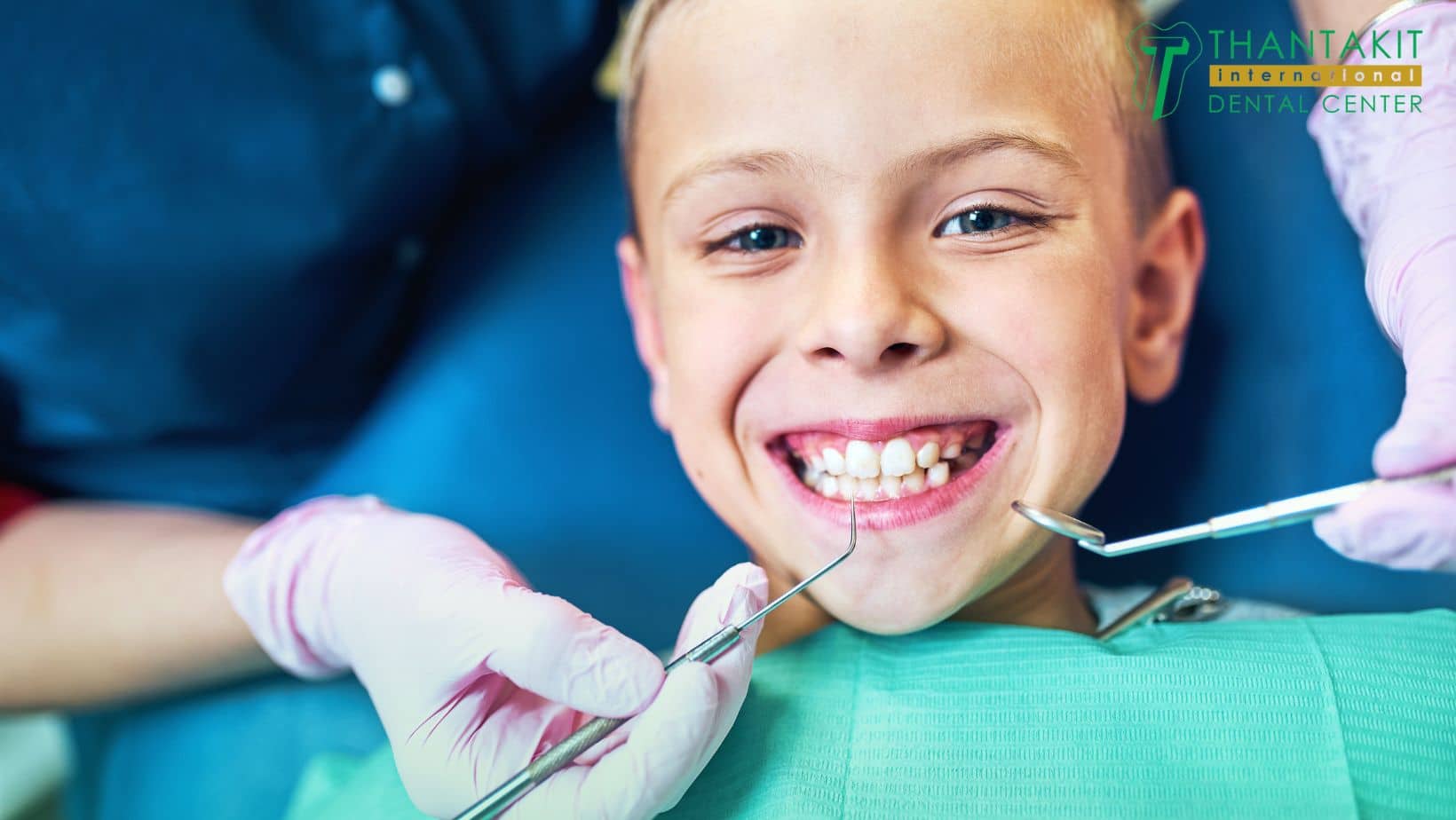
When You Don’t Feel Confident Smiling: The Hidden Impact
The Social Cost of Hiding Your Smile
You know that person at work? Covers their mouth when laughing? The friend who smiles with lips pressed tight in every photo. These behaviors seem like quirks. But they take a real toll.
King’s College London research has identified a distinct facial expression for anxiety, characterized by environmental scanning behaviors like darting eyes and head swivels, linked to risk assessment and heightened vigilance. Suppressing natural emotional expressions can be exhausting, as it increases the mental effort required to monitor and control one’s face during social situations. This extra cognitive load can make it much harder to fully engage in conversation and connect with others, and has been associated with elevated social anxiety in clinical studies.
Thantakit patient, UK teacher, explained it: “I spent so much energy hiding my teeth. Couldn’t focus on what people said. I’d plan facial expressions in advance. Avoid certain words that showed teeth more. Position myself so people saw my ‘good side.’ Exhausting doesn’t even cover it.”
That’s years of mental energy. Wasted. On hiding.
Professional Limitations Beyond Appearance
The impact goes beyond social situations. Multiple studies suggest that people who don’t smile confidently, especially in professional contexts, may be perceived as less engaged or approachable, which can hinder their chances of being selected for leadership roles. On video calls, not smiling naturally can lead others to view someone as less friendly or involved, regardless of their actual qualifications or participation.
Bangkok’s international business community gets this. Executives choose Thantakit specifically for professional presence. Thailand’s positioning itself as a regional hub. Projecting confidence across cultures? That matters now more than ever.
We had an IT manager, brilliant guy, kept getting passed over for promotions. After dental implants to replace missing teeth, everything changed. “Suddenly I was ‘leadership material,'” he said. “Same skills. Same experience. Different smile.”
The Psychological Burden
Dr. Susan David, Harvard Medical School psychologist, describes “emotional labor” as the ongoing effort to control and manage emotional expressions—especially in social and professional situations. For those who are self-conscious about their teeth or dental issues, this labor doesn’t stop; it means constantly monitoring every smile, every laugh, and every spontaneous moment of joy.
Suppressing positive emotions, like smiling, has measurable effects on physical well-being. Studies show that people who regularly hide or bottle up their positive feelings tend to show higher levels of inflammatory markers in their blood—biological signals linked to greater risk for heart disease and autoimmune disorders. In other words, hiding a smile for long periods isn’t just emotionally exhausting; it may actually affect physical health by increasing the body’s burden of stress and inflammation.
This isn’t just theoretical. It’s a real consequence of the daily struggle to hide something as natural as a smile.
Cosmetic Dentistry and Confidence: The Transformation Science
Modern Solutions at Thantakit Dental Center
Seventy-seven years. That’s how long Thantakit’s been transforming smiles in Bangkok. We’ve evolved from Thailand’s oldest dental center into a comprehensive cosmetic dentistry destination. Not just keeping up with technology, though our digital imaging and laser equipment represent cutting-edge advances. It’s understanding that dental care is healthcare. Smile confidence affects everything.
Cool air, soft hum of the intraoral scanner. Let me break down the most transformative treatments:
Teeth Whitening Bangkok Style
Professional whitening at Thantakit beats any home kit. Controlled concentrations, LED acceleration, we can lighten teeth eight shades in one session. So, what does that mean in real life? The psychological shift happens immediately. Patients walk out smiling more. Within hours.
Australian coffee lover came in. Hadn’t smiled in photos for years. After whitening, she said it was “like deleting an Instagram filter I’d been stuck with.” Another patient said cold water stopped “zinging” after the desensitizer gel. Small thing, big relief.
Data points the same way. People with whiter teeth get perceived as more successful. More approachable. Most importantly? They perceive themselves more positively.
Thai iced tea, som tam, all those delicious curries. They stain teeth over time. Local patients know this. That’s why whitening remains our most popular quick transformation.
Veneers: The Complete Transformation
Porcelain veneers remain dramatic. These ultra-thin shells correct multiple issues simultaneously. Gaps, chips, discoloration, minor misalignment. At Thantakit, digital smile design shows you potential results before we touch a single tooth.
Singapore business owner got veneers last year. His follow-up message: “Not just younger looking. I feel authentic. First time in decades, my outside matches my inside. Confident and approachable.”
One patient joked his veneers were the best investment since his first car. Funny thing? He wasn’t really joking. The confidence boost affected his business, relationships, everything.
Dental Implants: Restoring More Than Teeth
Missing teeth affect everything. How you eat. How you speak. How you age. Bone loss after tooth loss changes facial structure. Makes you look older. Dental implants stop this. Preserve bone and facial structure while restoring function.
Thantakit’s implant success rate? Over ninety-seven percent. Our experienced implantologists use 3D imaging for precise placement. Numbers don’t capture human impact though.
Japanese patient avoided restaurants for five years. Missing molars made eating embarrassing. Six months after implants, he sent photos from his Bangkok food tour. Finally enjoying Thai cuisine without worry. “I forgot what it felt like to eat without thinking,” he wrote. A week later he messaged again. Durian this time. “Chewy, glorious, no fear.”
Clear Aligners: The Discreet Revolution
Adults want straight teeth but resist metal braces. Clear aligners offer near-invisible alternative. Technology’s advanced dramatically. What took years now takes months. Thantakit orthodontists use advanced software predicting tooth movement, optimizing treatment time.
Dubai flight attendant chose clear aligners specifically for her customer-facing role. “I could perfect my smile without putting life on pause,” she explained. “Passengers rarely knew.”
The psychological benefit of discreet treatment? Huge. Patients keep smiling throughout treatment instead of hiding behind metal.
The Dental Tourism Advantage in Thailand
Bangkok’s become this global dental tourism destination. Thantakit sits at the center. Why do people fly thousands of miles for dental care? It’s not just cost, though treatments here cost fifty to seventy percent less than Western countries.
First, expertise. Thai dentists often train internationally. Many Thantakit specialists studied in US, UK, Japan before returning. They bring global perspectives, techniques, while maintaining Thai emphasis on patient care.
Second, technology rivals or beats Western clinics. Digital X-rays, CAD/CAM crowns, laser dentistry, computer-guided implants. Standard at Thantakit. Not premium add-ons.
Third, the experience differs completely. Where else can you combine dental care with tropical recovery? Patients schedule treatment, then explore temples, beaches, markets during healing. First spoon of warm mango sticky rice, easy on tender teeth. Warm broth later that night, easy on the bite, tasted better than expected. Relaxed environment actually aids recovery. Stress reduction improves outcomes.

Pain-Free Procedures: Addressing the Fear Factor
Dental anxiety keeps millions from treatment. At Thantakit, patient comfort is a priority. Modern techniques and technologies help minimize discomfort during procedures. For anxious patients, various approaches can help make treatment more comfortable. The team works with each patient to find the right solution for their needs and comfort level.
Technology’s only part though. Our internationally trained staff understand emotional comfort matters as much as physical. From consultation through recovery, clear communication. No surprises. No judgment. Just professional care with genuine Thai warmth.
“I expected pain,” one nervous patient from Germany told us. “Instead, I got gentle care and explanations for everything. The fear was worse than the actual treatment.”
The Science Meets Dentistry: Why This Connection Matters
The Wellness Revolution in Dentistry
Dentistry’s experiencing this paradigm shift. Not just fixing problems anymore. It’s optimizing health, wellbeing. Aligns with broader wellness trends. People invest in prevention, enhancement, not just treatment.
A long-running study suggests oral health connects to everything. Gum disease links to heart disease, diabetes, even Alzheimer’s. Beyond medical connections, there’s growing recognition. Smile confidence affects mental health, social success, quality of life. Thantakit embraces this holistic view. We treat smiles as gateways to overall wellness.
Longevity and the Smile Factor
Longevity medicine looks at factors extending not just lifespan but health span. Years lived in good health. Surprisingly, dental health and smile confidence rank high. Multiple studies correlate genuine smiling with longer, healthier lives.
Why? Complex mechanisms:
- Reduced chronic stress (major aging accelerator)
- Stronger social connections (crucial for longevity)
- Better mental health (links to physical outcomes)
- Increased activity (confident people engage more)
- Improved nutrition (proper dental function enables better eating)
When Thantakit helps restore someone’s smile, we’re potentially adding years to life. Life to years. Not marketing talk. Evidence-based medicine.
The Mental Health Connection
The relationship between cosmetic dentistry and mental health is well established. Multiple recent studies show that people who receive cosmetic dental treatments such as veneers, whitening, or implants report improved self-esteem, reduced anxiety, and a better quality of life within months after treatment. These improvements, measured by standard scales for psychological and social well-being, are often rapid and significant underscoring the impact aesthetic dentistry can have on both mental and emotional health.
Not saying veneers cure depression. But for someone whose self-esteem’s been undermined by dental issues? Addressing those issues removes significant psychological distress. At Thantakit, we often coordinate with mental health professionals. Smile restoration can be part of broader wellness journey.
This reflects our team’s opinion and experience; it isn’t personal medical advice.
Building Resilience Through Confidence
Psychological resilience, bouncing back from setbacks, correlates with confidence. Visible confidence markers like genuine smiles build resilience over time. Positive feedback loop. Confidence leads to positive interactions. More positive interactions build more confidence.
Russian patient came for full-mouth rehabilitation. Years of neglect during difficult divorce. Treatment took several visits over two months. Each improvement, she stood taller. Spoke clearer. Smiled broader. Final visit? She’d transformed more than her smile. Started new business. Reconnected with friends. “Fixing my teeth gave me permission to fix my life,” she said.
That’s the power we’re talking about.
Why Choose Thantakit for Your Smile Transformation
77 Years of Trust and Innovation
Being Thailand’s oldest dental center means something. Through seven decades, Thantakit’s treated generations of families. Adapted to countless advances. Maintained unwavering commitment to patient care. This longevity isn’t luck. It’s consistently delivering results that change lives.
Our Bangkok location provides easy access. Skytrain stops at our doorstep. Hotels surround us. The airport is roughly 45 minutes away. Convenience? That’s just the start.
International Standards, Thai Hospitality
Every Thantakit dentist maintains international certifications. Participates in global continuing education. Infection control meets or exceeds US CDC standards. Equipment from leading manufacturers in Germany, Japan, United States. Yet what patients remember most? The warmth.
Thai culture emphasizes “nam jai.” Water from the heart. Genuine kindness and consideration. Not customer service training. Cultural DNA. Combined with clinical excellence? Creates an experience explaining why over sixty percent of international patients come from referrals.
Comprehensive Care Coordination
International patients worry about communication, coordination. At Thantakit, English-speaking coordinators manage everything. Airport pickup. Hotel arrangements. Treatment scheduling. Nothing left to chance. Detailed treatment plans and cost estimates before you leave home. No financial surprises.
Complex cases requiring multiple specialists? Our team approach means seamless coordination. Oral surgeon, prosthodontist, cosmetic dentist work together. Often same appointment. Maximizing your time and outcomes.
Frequently Asked Questions About Smiling and Cosmetic Dentistry
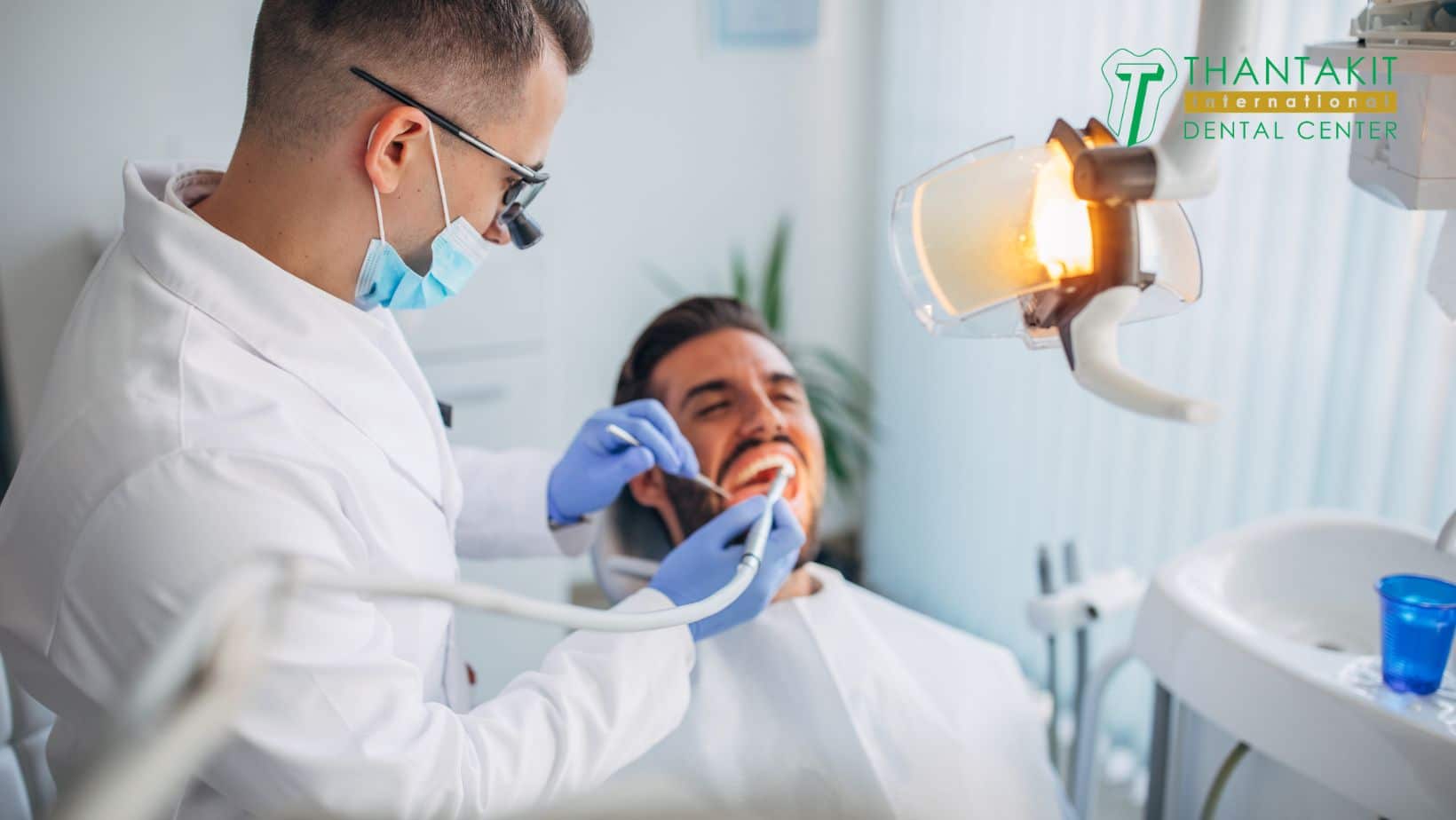
Does smiling really make that much difference to my health?
Absolutely. Harvard Medical School work suggests frequent smilers have lower stress hormones, stronger immune systems, better cardiovascular health. Psychological benefits? Just as significant. Regular smiling links to reduced anxiety, improved mood, stronger connections. When cosmetic dentistry makes you want to smile more, you’re investing in overall health. Not just appearance.
To be honest, I was skeptical about this myself initially. But the data keeps piling up. It’s real.
How much can I save on cosmetic dentistry in Thailand compared to my home country?
Typically? Fifty to seventy percent savings compared to US, UK, Australia prices. Even including flights and accommodation. Veneers costing $2,000 per tooth in New York? Usually, $400-600 at Thantakit. Dental implants running $5,000 in London? About $1,800-2,500 here.
Here’s the twist, though. Lower prices don’t mean lower quality. Our dentists train at the same international institutions. Use the same high-grade materials. Sometimes better equipment than Western clinics.
How do I know if cosmetic dental treatment is right for me?
If you’re hiding your smile, avoiding photos, feeling self-conscious about teeth in social or professional situations? Cosmetic dentistry could help. First step’s consultation. We discuss concerns, goals. Thantakit offers virtual consultations for international patients. Explore options before traveling.
This isn’t about vanity, let me be clear. It’s removing barriers to natural expression and confidence.
What if I’m anxious about dental procedures?
Dental anxiety’s incredibly common. We take it seriously. Really seriously. Thantakit offers various sedation options. Nitrous oxide to IV sedation. Pain-free injection techniques, laser dentistry minimize discomfort. Many anxious patients get surprised how comfortable modern dentistry can be.
We encourage bringing music. Practice breathing exercises. Take breaks whenever needed. Your comfort? Our priority. One extremely anxious patient from Australia told us, “I built it up so much in my head. The actual treatment was nothing compared to my imagination.”
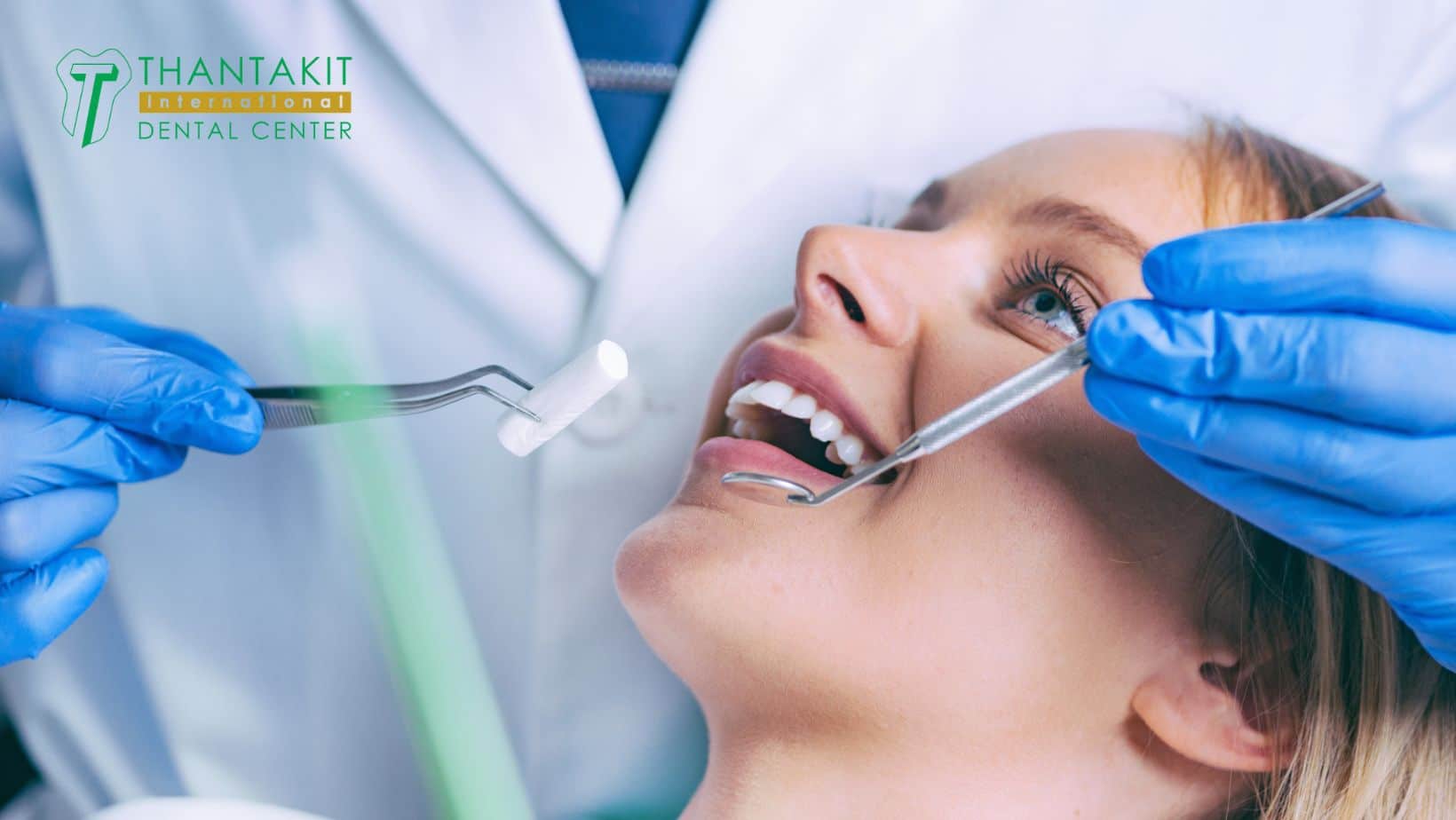
Can I really combine dental treatment with a vacation in Thailand?
Absolutely. Most patients plan treatment at the beginning. Then enjoy recovery exploring Thailand. Bangkok offers world-class hotels, amazing food (soft foods post-treatment!), cultural sites, shopping. Phuket, Koh Samui? Short flights for extended recovery. We provide detailed aftercare instructions. Remain available by phone throughout your stay.
It’s medical tourism done well, in our experience. One couple from Norway called it their “smile vacation.” Got veneers, saw temples, ate amazing Thai food, went home transformed.
How long do cosmetic dental treatments last?
With good care? Veneers typically last ten to fifteen years. Sometimes longer. I’ve seen cases push twenty, though that depends on habits. Coffee, smoking, grinding teeth, all make a difference. Dental implants can last a lifetime with proper hygiene. Whitening results vary. Usually, one to three years depending on diet. Clear aligner results? Permanent if you wear retainers as directed.
Thantakit provides detailed care instructions. Offers follow-up services maximizing your investment longevity. Many international patients combine check-ups with vacations. Smart way to maintain that investment.
The Power of Your Smile: Taking the Next Step
After all this science, psychology, medical benefits, one thing’s crystal clear. Your smile? It’s more than aesthetic feature. It’s a tool. Better health. Stronger relationships. Improved quality of life. Every genuine smile triggers positive changes in body and mind. Invites connection and opportunity into your life.
But knowing science is one thing. Taking action? That’s another.
If you’ve been covering your smile in photos, maybe it’s time. Why wait another year? If you’re avoiding cameras, holding back in social situations because of your teeth, you’re not alone. Millions face the same challenge. Good news though. Modern cosmetic dentistry makes smile transformation more accessible, comfortable, predictable than ever.
At Thantakit Dental Center, we’ve spent seventy-seven years perfecting the art and science of smile transformation. Simple teeth whitening to complete makeovers with veneers and implants. We combine international expertise with genuine Thai hospitality. Results that change lives.
Located in Bangkok’s heart, easily accessible for local and international patients. English-speaking team. State-of-the-art technology. Comprehensive care coordination. The journey from hidden smile to confident grin? Smoother than you might imagine.
Whether you’re a Bangkok resident seeking the best cosmetic dentistry or international visitor combining dental care with Thai tourism, Thantakit offers unique combination. Expertise, value, care. We don’t just fix teeth. We unlock the power of confident smiles.
Ready to discover what your smile can do? For your health, relationships, confidence? Contact Thantakit today for consultation. Because science suggests confident smiling isn’t just about looking good. It’s about living better. And honestly? You deserve both.
Your new smile journey starts with one decision. Make it count. Make it at Thantakit.
The first step is often the hardest. But it’s also the most important.



